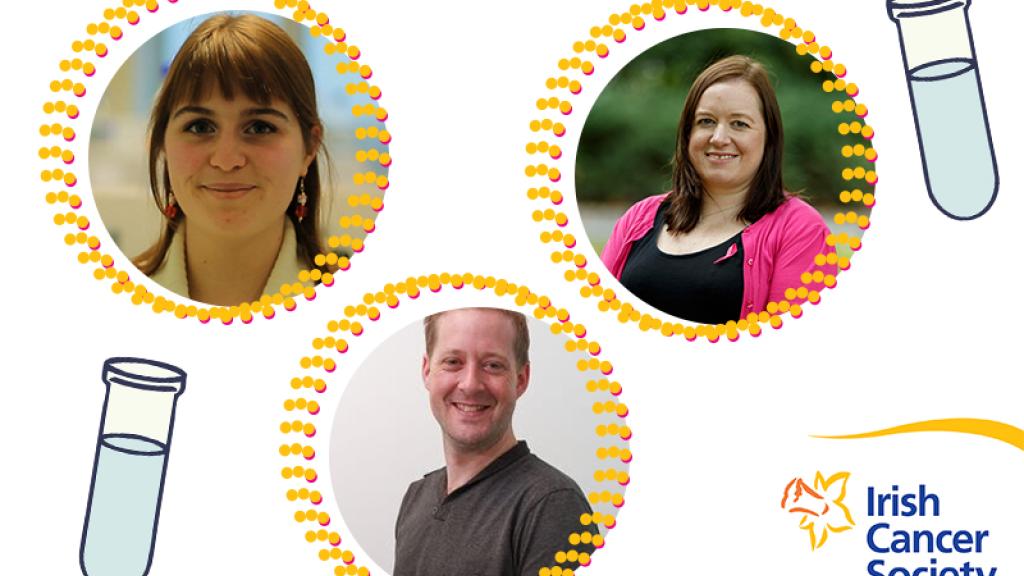
Breast Cancer Research – how your support makes a difference
This October we’re excited to tell you about new research into potential new ways to treat some breast cancer patients. Did you know that all our cancer research is funded through donations? So your Cups Against Breast Cancer coffee morning this October can make a real difference.
Dr Naomi Elster, Dr Alex Eustace and Dr Sinead Toomey were funded by the Irish Cancer Society’s breast cancer centre BREAST-PREDICT. Their new findings provide hope that women whose breast cancer is resistant to current drugs may in the future have access to personalised, more effective treatments.
Based in the Royal College of Surgeons of Ireland in Dublin, the researchers have discovered a new use for a drug in treating women with HER2-positive breast cancer, a form of the disease which affects 500 women in Ireland each year.
Treatment of this type of cancer improved recently when drugs (e.g. trastuzumab, lapatinib) that block the HER2 protein were discovered. However, at least one-in-five HER2-positive breast cancer patients have cancers that are resistant or become resistant to these new treatments.
Previous research in cancer cell lines has shown that changes or mutations in a family of related genes called the ERBB-family can make cells more aggressive and less likely to respond to treatment with lapatinib.
This study used tumour samples from 227 Irish HER2-positive breast cancer patients and found that 7% of patients had mutations in these genes. Mutations were most common in the ERBB4 gene. The researchers then tested cell lines with and without these mutations with different anti-cancer drugs to see if the mutations would make the cells grow more aggressively or make the less likely to respond to the drugs.
One of the mutations that was tested (ERBB4-V721I) made the cells grow more aggressively. Cells with this mutation were less likely to respond to afatinib, a drug which targets the ERBB family. However, the cells were more likely to respond to a newer drug called copanlisib.
According to Sinead: “Although our findings need to be confirmed in a larger study, it is possible that these mutations may be able to tell us which patients will respond or not respond to certain therapies, and ultimately we hope to be able to use this information to personalise treatment so as to increase the percentage of women with HER2-positive breast cancer who we are able to treat effectively.”
The researchers’ work was recently published in the journal ‘Therapeutic Advances in Medical Oncology’.
Dr Robert O’Connor, Head of Research at the Irish Cancer Society, said: “This research is an example of the vital work of BREAST-PREDICT, made possible by the country’s support of fundraising campaigns like ‘Cups Against Breast Cancer’.
“Since the Irish Cancer Society established BREAST-PREDICT five years ago, we’ve funded the work of over 50 breast cancer researchers across the country. That’s meant a €7.5 million investment that’s only been possible through the public’s generous donations.
“The Irish Cancer Society can only invest in cancer research because of this support. Throughout October we’re asking the public to continue this support by hosting a Cups Against Breast Cancer coffee morning to raise funds for breast cancer research and free patient support services.”
